First signs before two-year-old diagnosed with rare chromosome duplication
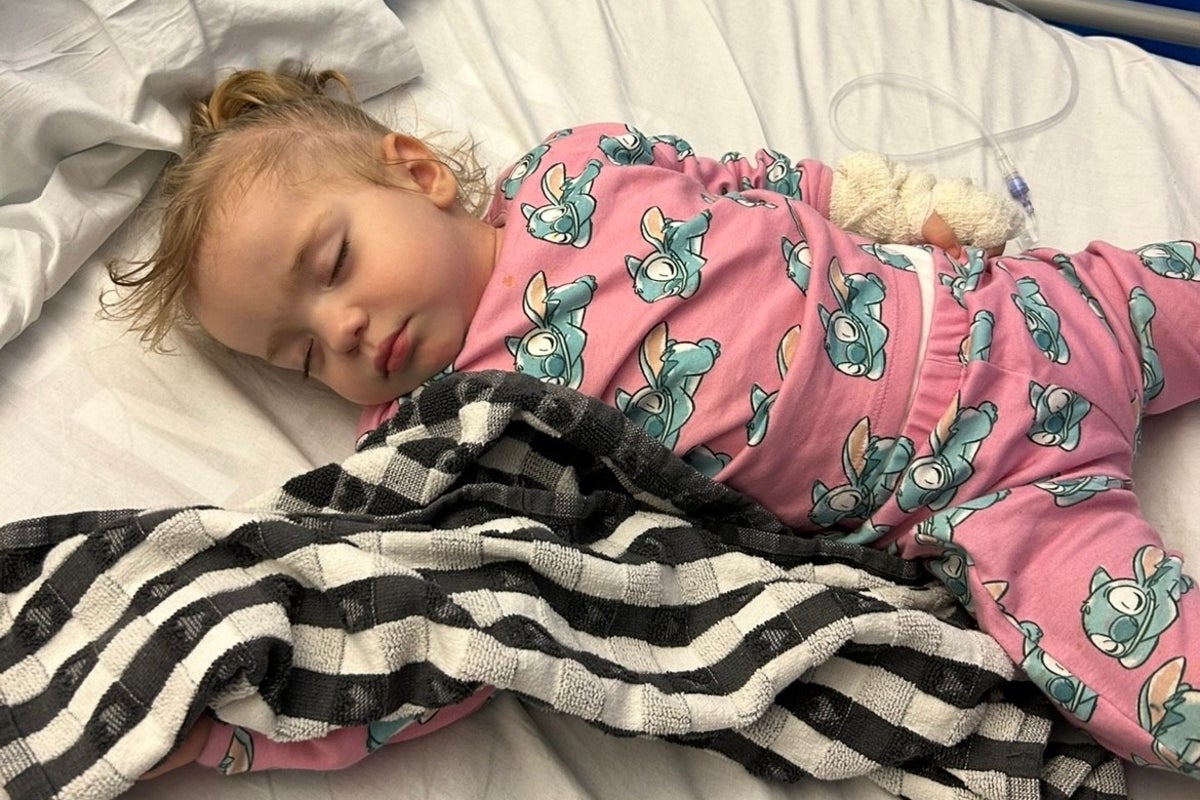
A mother-of-four from Cradley Heath, near Birmingham, has spoken of her two-year-old daughter’s diagnosis with an extremely rare disorder, discovered by chance during an unrelated hospital visit.
Gemma Loveridge, 41, a full-time mother of four, noticed her youngest child, Dottie, born in December 2022, was not developing as the other children were after starting nursery.
Dottie was unable to speak, including simple words like “mumma” or “dadda”, could not walk, and would often smack her hands or her head.
Following a referral to a paediatrician in August 2024, an MRI scan in October revealed a cyst on Dottie’s brain. However, the true cause of her developmental delays emerged in November, when Dottie was admitted to Russell’s Hall Hospital, Dudley, for an unrelated stomach issue.
During a blood test, doctors discovered she had a duplicated 15th chromosome (Dup15Q). an extremely rare disorder which causes neurodevelopmental issues.
Gemma says it is unlikely Dottie will develop past the mental age of a three-year-old.
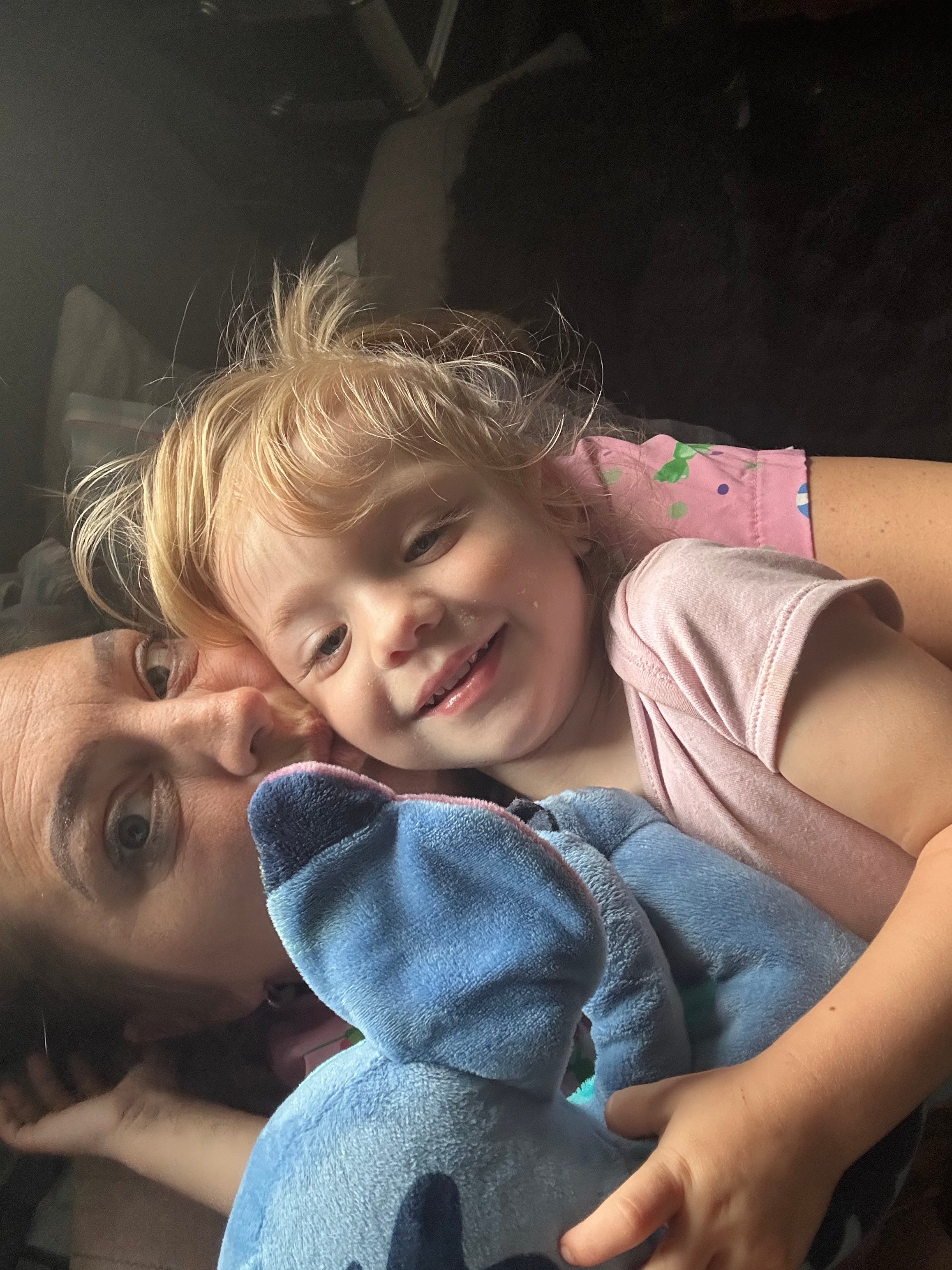
“She can’t communicate at all so I have to guess what she wants, and to not even have her say ‘mumma’ is very upsetting,” Gemma said.
“I feel guilty thinking that it’s something I’ve done to her.
“But I do what I need to do for her. I just put a smile on and try and get on with it, try and make her life as good as I can.”
According to Dup15q Alliance, “Chromosome 15 is one of the 23 pairs of chromosomes in humans. Humans are born with two copies of each chromosome – one from the mother (maternal) and one from the father (paternal).
“Depending on which parental chromosome the extra genetic material is on, symptoms may present differently”.
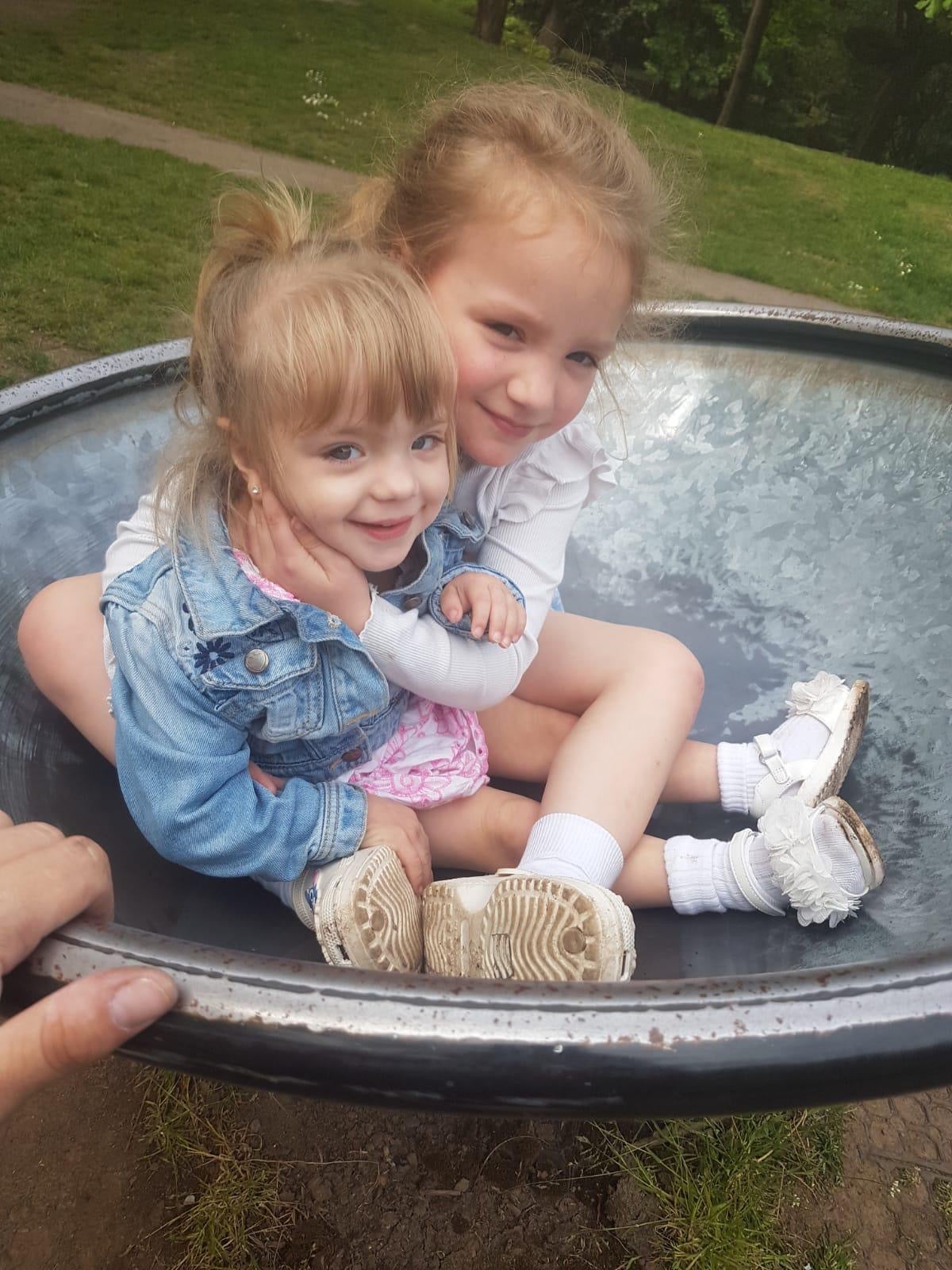
Gemma says the disorder has caused Dottie’s autism and epilepsy as well as her extremely painful hypotonia – low muscle development – while the cyst has caused thyroid and hormonal issues as well as eye problems. However, the full extent of the effects of both is not yet clear.
“It’s just a waiting game,” Gemma said, adding that the cause of Dottie’s disorder is not fully known either.
Though Dup15q Alliance says that “in most cases, the chromosome duplication is not inherited, but de novo, which means the multiplication occurred as a random event during early embryonic development”, her mother has been told by doctors that it is likely to have been genetic.
As a result, she struggles with guilt, feeling that she passed it on.
“It’s very upsetting,” she said.
“Doctors told me that it’s likely to have come through me as if it had come from her father, she would not be showing symptoms. I feel guilty thinking that it’s something I’ve done to her.”
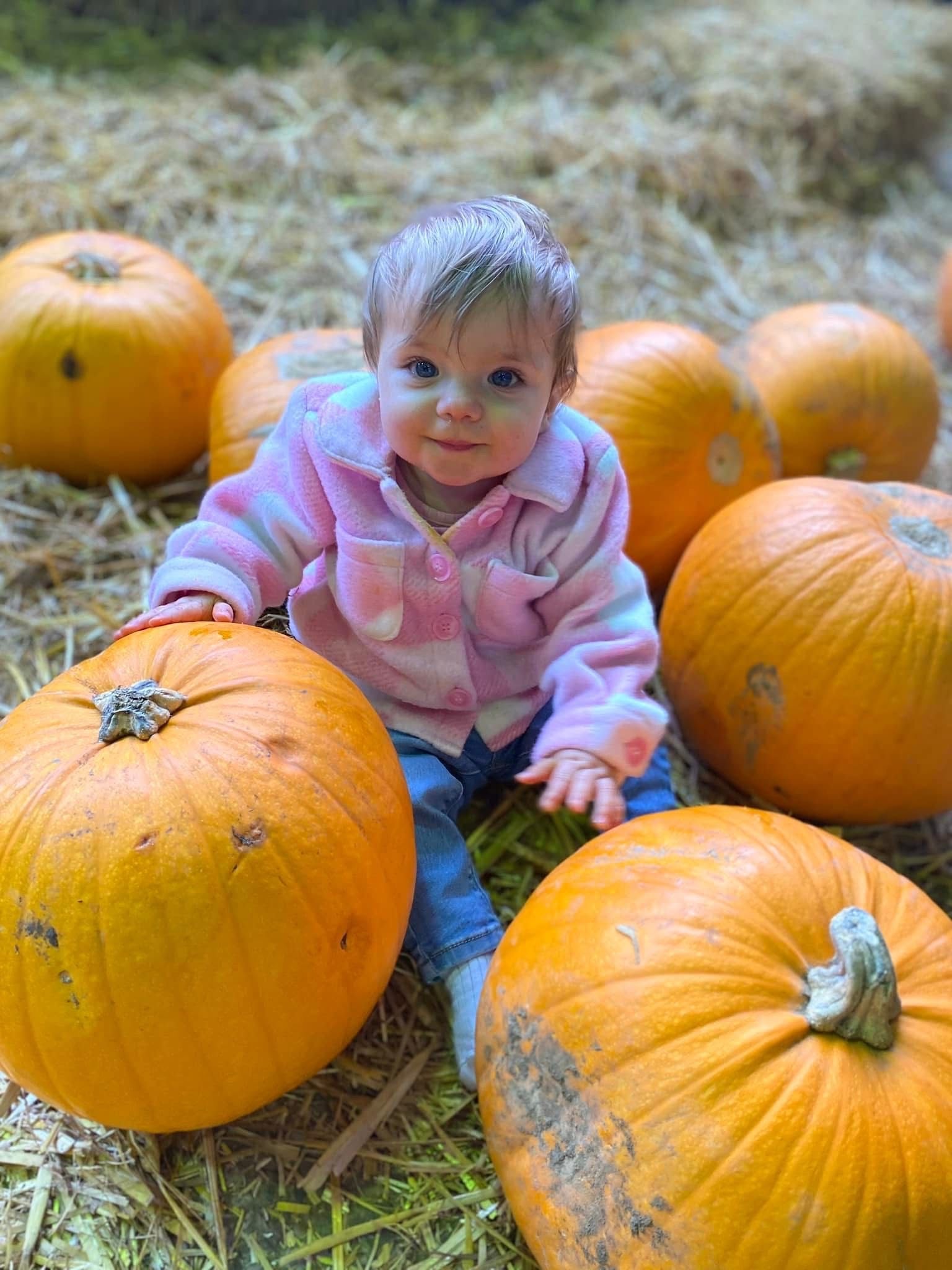
A single mum, Gemma says raising Dottie alongside three other children is extremely challenging.
She says her other children deal with the situation well, considering how hard it is for them too.
Dottie often attacks her siblings and much of Gemma’s attention is diverted to looking after Dottie.
“I feel guilty that I can’t give them enough attention and they often get upset.
“By the time I’ve finished with Dottie, I’m exhausted and have no energy.
“Dottie doesn’t sleep either, which makes me even more tired.
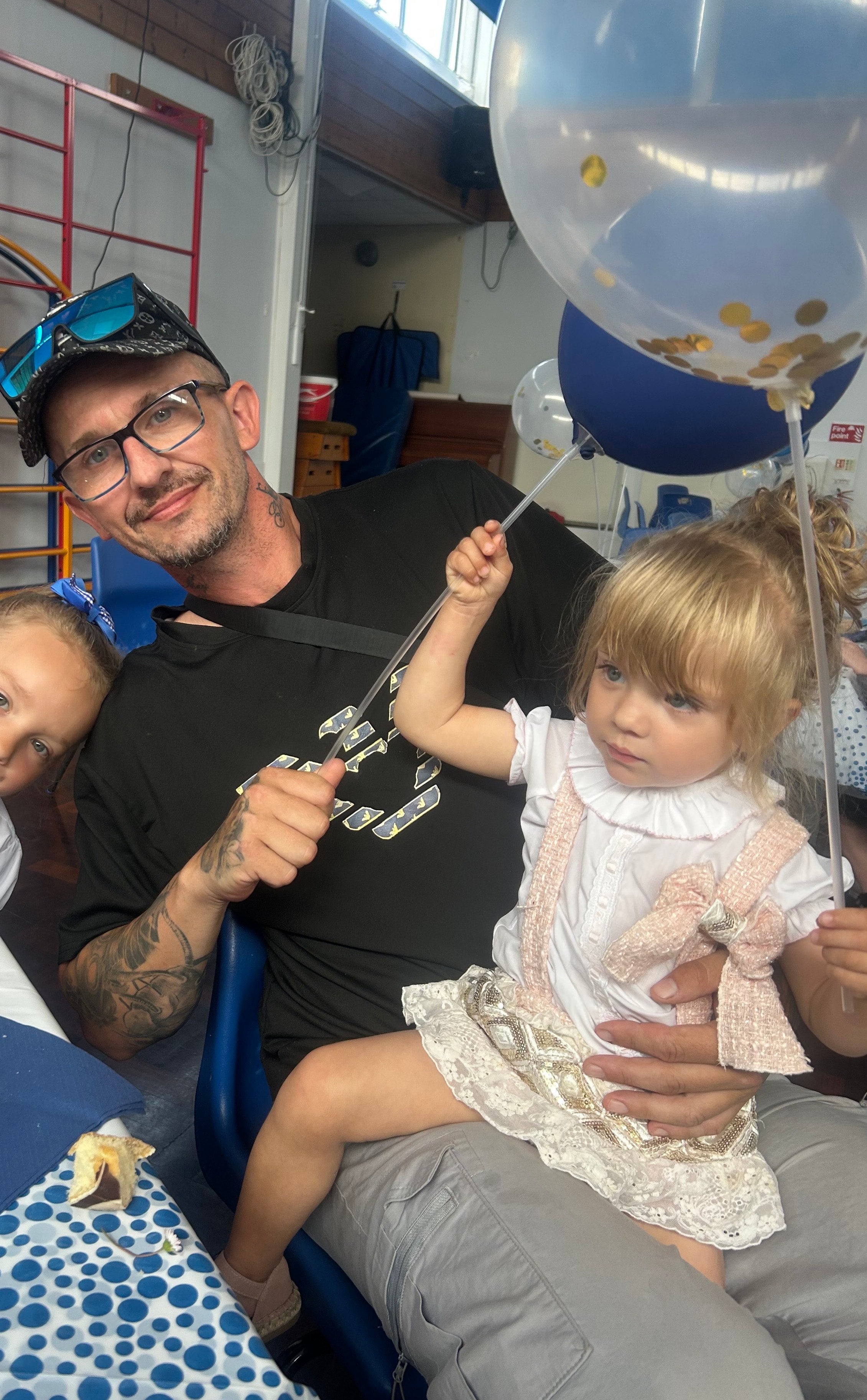
“It feels like I’m driving a car with no petrol in it.
“Of course when I see her smile though, all that goes away.
“She loves water so we try and take her swimming as much as we can or fill up paddling pools and trays of water.”
Gemma says her six-year-old daughter says she wishes Dottie were just “normal” so they could play together.
Because of her thyroid issues, Dottie is “the size of a one-year-old”, but despite this, raising her is physically demanding.
Gemma says Dottie has to be carried everywhere and she has severe separation anxiety.
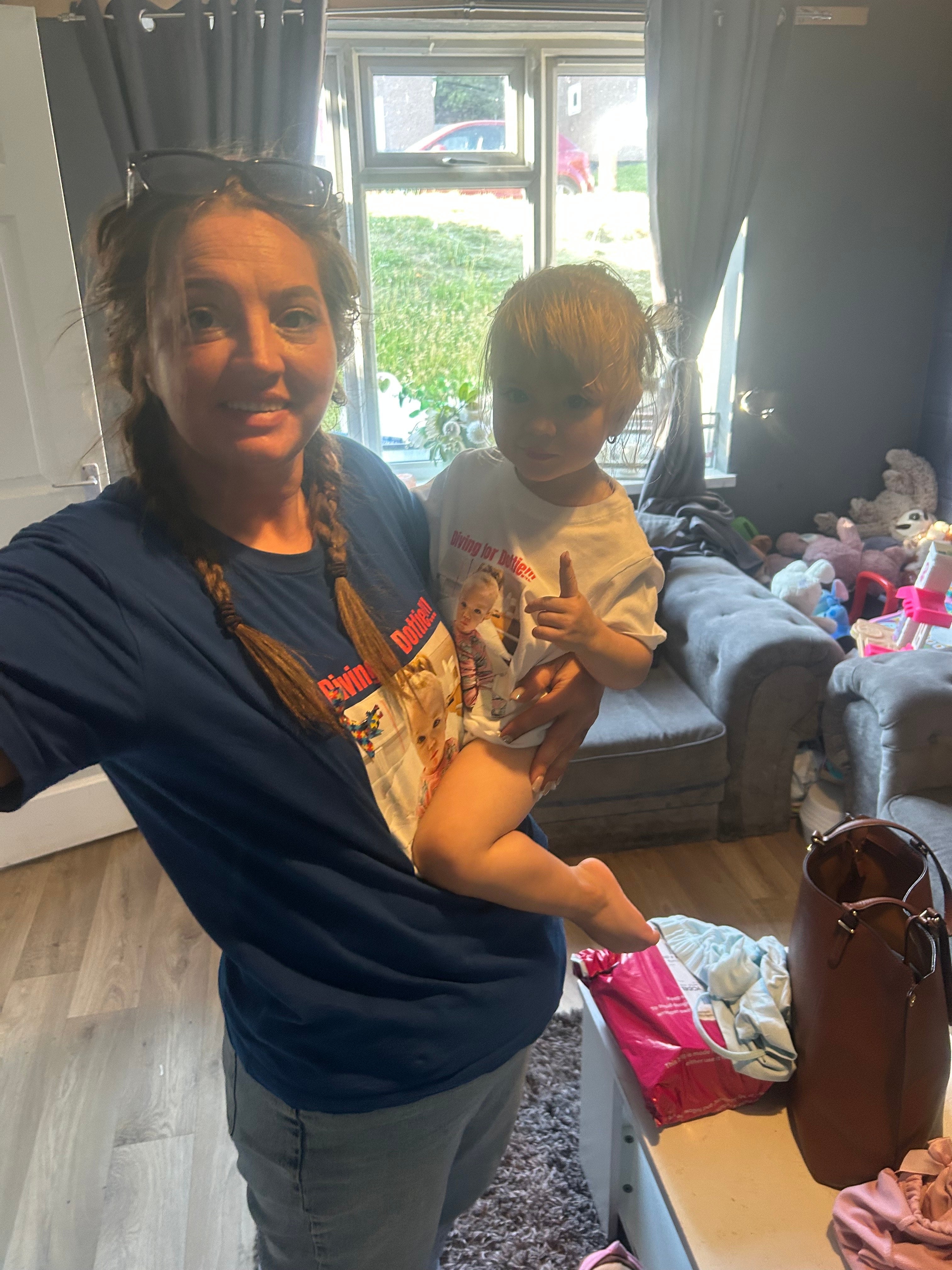
Gemma has arthritis and sacroiliac joint dysfunction – pain in the pelvic joint – meaning she is increasingly struggling.
“Dottie will always need care and it does take a toll on our bodies as well,” she says.
Though they are not together, Gemma has a good relationship with Dottie’s father, Davie Byfield, 36.
Davie cannot work since he has a non-functional neurological disorder, but he is able to look after Dottie for two nights a week, giving Gemma a break.
In September, they are all going for a holiday to Egypt.
“We’ll take it in turns to do one hour on the sunbed,” Gemma says.
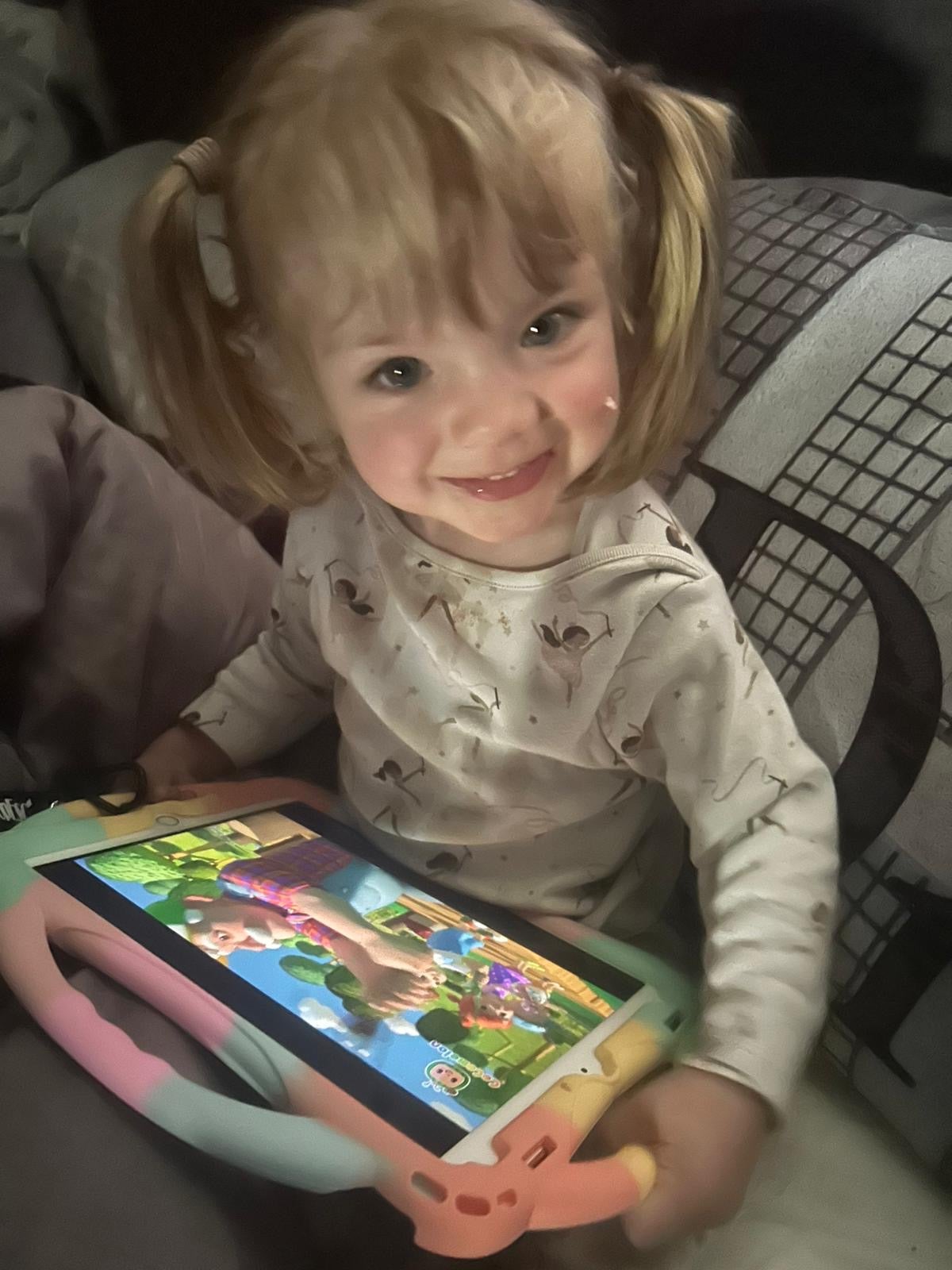
Gemma is now fundraising for a device that will enable Dottie to communicate.
This July she did a skydive in Tilstock, Shropshire, and there is a dance festival near Kidderminster next month to raise more funds.
Costing £8,000, the tablet-like device has simple pictures denoting feelings like hungry or tired, and it can track Dottie’s eye, so it knows which she is looking at.
Gemma hopes Dottie will learn to use it, as she thinks it will be a huge help.
Having reached her £8,000 target already, Gemma hopes to spend the excess funds on stem cell treatment in Germany, which she hopes will help reduce the impact of Dottie’s autism.
“It won’t cure it completely but it should give her a better way of life,” Gemma says.
She also hopes to raise enough money to go to the US to have laser surgery on the cyst on her brain, since it is not available on the NHS, and to buy things Dottie will need in the future, like a wheelchair.
Despite the hardships, Gemma says there are some special moments.
“Seeing Dottie smile when she finds something she likes, it’s enough,” she says.
“Just seeing all the kids together playing in the park, it makes all the struggle worth it.”
You can donate to Dottie’s page here: https://www.gofundme.com/f/dotties-voice.
[title_words_as_hashtags




